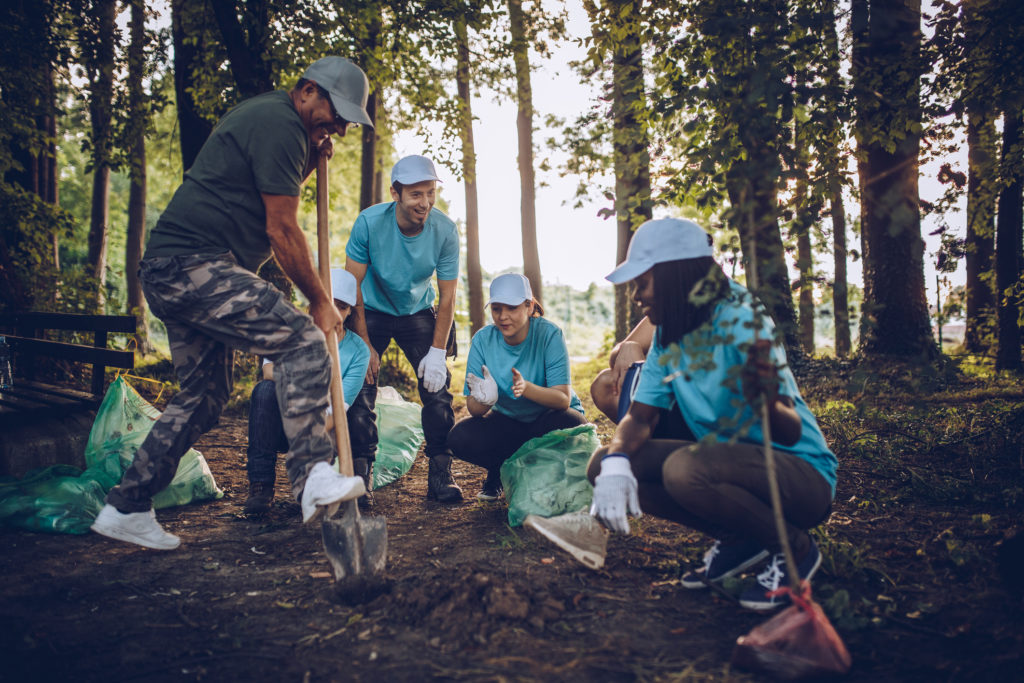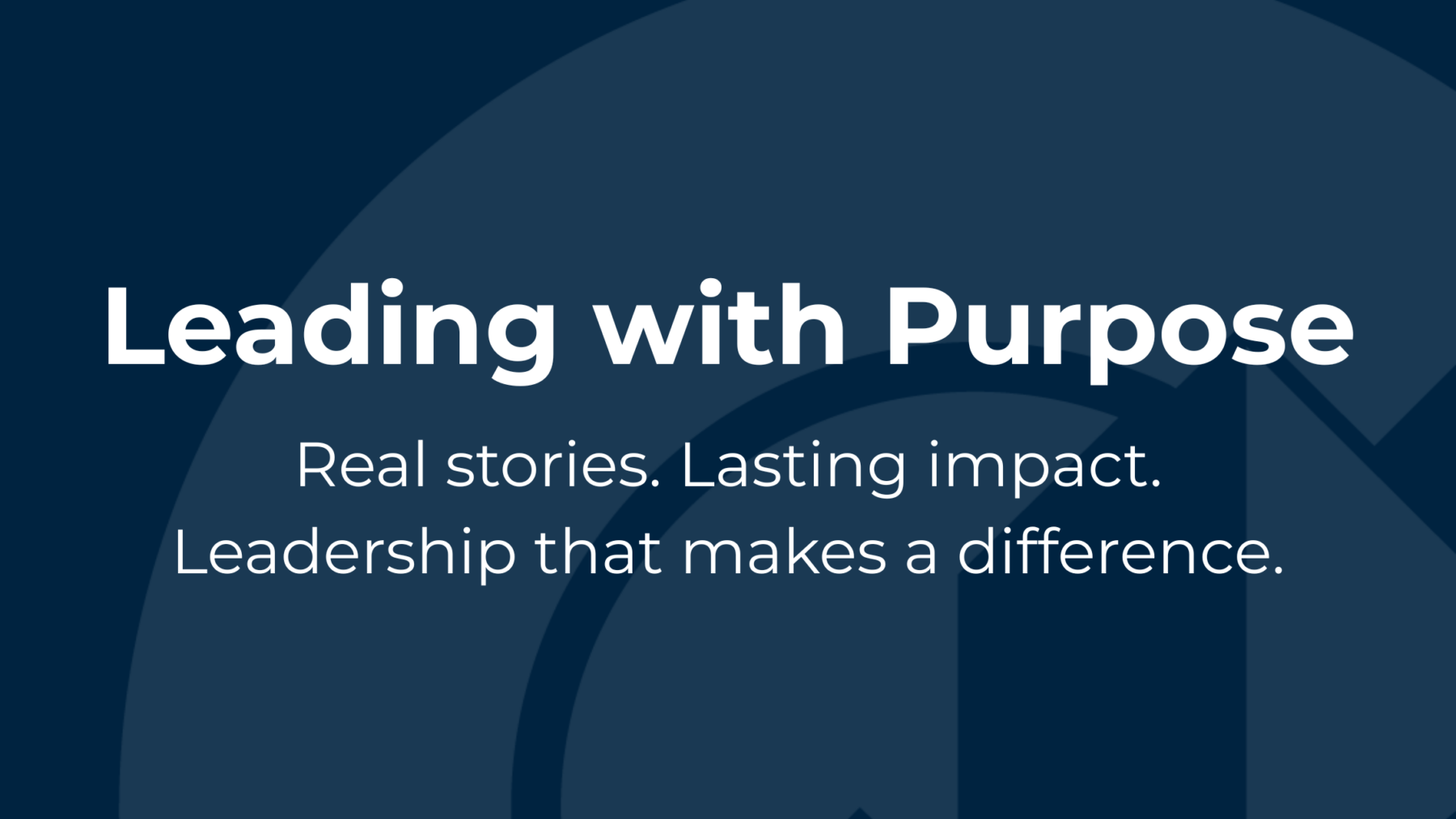A healthy community fosters strong businesses. We all have the ability to positively impact our community – and we have some tips and resources to help get you started. You may be surprised to learn that you don’t have to have a lot of time or money to be socially responsible and give back to the community. If you or your company doesn’t know where to start with corporate social responsibility, we’re here to help.
When a company is civically engaged, not only does it benefit the community, but it also benefits the business and its employees. “There has been a shift away from ‘it’s a nice thing to do’ to ‘it’s something that companies must do (to stay competitive),’” said Joyce Witte, founder of Corporate Community Investment Network, a predecessor of B:CIVIC, a new partner of our Denver Metro Chamber Leadership Foundation that is committed to increasing corporate social responsibility by providing tools for companies of all sizes to meet the growing expectations of their customers and employees.
In fact, 86 percent of U.S. consumers expect companies to act on social, environmental or other community issues. Cone Research found that 79 percent of people prefer to work for a socially responsible company and 79 percent of employees think it’s important that their companies match their charitable giving. According to the first-of-its-kind Good Business report – developed in partnership by the Chamber and B:CIVIC – 93 percent of companies in Colorado that gave in-kind services did so in the state.
The Chamber was a founding member of B:CIVIC in 2013, and the Leadership Foundation and B:CIVIC have a history of working toward a similar mission to strengthen Colorado through community leadership and social responsibility.
So, what is CSR?
Corporate social responsibility (CSR) is an opportunity for a for-profit organization to give back to its community and be socially accountable to itself, its employees, customers and the public. CSR practices can enforce a stronger bond between employee and corporation; they can boost morale and productivity; be more desirable for clients and potential employees; reinforce brand reputation; and build trust within your community.
Small businesses – those with fewer than 100 workers – accounted for 98.2 percent of employers in the U.S. in 2016. “With numbers like that, we must provide small businesses the resources to be successful in giving back to their community and benefiting from the employee and customer loyalty CSR offers,” said Kirsten Vermulen, executive director of B:CIVIC.
Similarly, Colorado’s economy is fueled by 1 million small business employees. “It’s imperative – businesses are a tool that we can use to do good,” said Adam Odoski, co-founder of Denver-based Good River Beer. “It’s a way to give back and promote a healthy and sustainable community – environmentally and socially. It’s our responsibility as members of the community to give back to where we live. We should be giving back more than we take to make it sustainable.”
Here are five of the major ways that small (or large) businesses can start giving back:
Make it a priority from day one.
“(Good River Beer) started with a different business model. We started with distribution first and without a taproom,” Odoski said. This allowed them to focus on getting their beer to consumers without the overhead, allowing them to commit 2 percent of their gross revenue primarily to American White Water and Colorado Water Trust. The result, a nonprofit dubbed 2% for Rivers, was created with the mission to protect clean, healthy river ecosystems and promote responsible recreation access. And, Good River Beer is doing just that – along with
brewing good beer.
Similarly, 34 Degrees – a cracker and snack company – has been giving back since its inception. “It was woven into the fabric of the company,” said Jenny Cavanaugh, culture and community manager for 34 Degrees. “At the beginning of every year, we put volunteer days on the calendar and account for it in our budget.”
Start small.
“Pick a cause you’re passionate about and just do it. Don’t overthink it; don’t over analyze it. If you need to start off small, great – do it small. Every dollar or bit of time helps – it goes a long way,” said Odoski.
After participating in the Denver Metro Chamber Leadership Foundation’s Leadership Denver, Tom Brinegar, VP and CFO of PEAK Resources, Inc., became more prescriptive around community engagement and how to have a bigger impact. PEAK Resources, Inc. employees wanted to engage in their own community (where their office is located, in Valverde), so they got involved with Denver Public Schools, volunteering as a group on a regular basis.
“It’s also a huge team building experience,” Brinegar said. “When you’re back in the office, you’re having more of a personal relationship with colleagues. It does resonate with people.”
Align with your mission.
“Food security is a huge focus for us. It’s part of our mission and connection to the food world outside our world of selling crackers,” Cavanaugh said. 34 Degrees is “committed to donating 1 percent of baked crackers to organizations to fight hunger.” They have close relationships with Food Bank of the Rockies and Project Angel Heart but are always looking to find organizations that can benefit from donations.
As a technology firm, PEAK Resources, Inc. presents a four-year scholarship to assist college-bound students from KIPP Collegiate who are interested in pursuing a degree in the technology field. “Having our employees being able to feel part of that is a huge benefit to us,” Brinegar said.
Think past the cash.
“You can do this without setting aside a cash amount,” Witte said. “Donate goods or services or give your employees volunteer time – either as a group or individually.”
34 Degrees provides two days per year for each employee to volunteer in addition to a companywide group volunteer day. “This gives people the opportunity to give back to other organizations they feel passion about,” Cavanaugh said. PEAK Resources, Inc. and Good River Beer also give their employees volunteer time off each year to follow their own charitable passions.
Engage your employees.
“Take the time to go to (your) employees first. I don’t think you can be successful if you don’t get employee buy-in from the very beginning,” Brinegar said. Ask your employees what they want to invest in (that aligns with the mission for the organization) and encourage employees to step up and get involved in the planning. “Find a way to enable people to be that champion within your company.”
It’s also a great way to “recruit, retain, increase engagement and increase productivity within your staff,” said Witte.
According to Project ROI, a well-designed corporate social responsibility program can:
- Increase employee engagement up to 7.5%
- Increase employee productivity by 13%
- Reduce employee turnover by 50%
- Increase revenue by as much as 20%
And, that engagement makes good business sense, too, these small business leaders said. “It gives legitimacy to the business side,” said Cavanaugh. “And, it seems to be more meaningful when there is a connection to how you’re making money and how you’re making change to the world.”
Maggie McEntee was the digital communications and brand manager for the Denver Metro Chamber.



